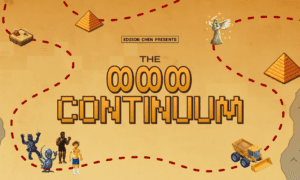Board Games In today’s fast-paced, digital world, board games might seem like a thing of the past, yet their popularity continues to thrive. Whether it’s gathering friends for a game night or introducing children to kids gaming classics, board games offer a unique experience that digital entertainment often cannot replicate. They bring people together in person, encouraging social interaction, strategic thinking, and even some healthy competition. From simple games for children to complex strategy games for adults, there’s something about the tactile, immersive nature of board games that keeps people coming back for more. But what exactly makes these games so fun? The answer lies in the perfect blend of social dynamics, mental challenges, and creative storytelling.
- Social Interaction and Human Connection
At the heart of every board game is the element of human interaction. Unlike solitary activities like watching a movie or even playing a video game online, board games foster direct, face-to-face communication. In an age where much of our interaction is mediated by screens, board games offer a refreshing opportunity to engage with others in real-time, in person.
This social component is key to the enjoyment many people find in board games. Whether you’re playfully arguing over rules, laughing at an unexpected turn of events, or strategizing with teammates, these moments of shared interaction create a sense of connection. Board games serve as a bridge between people, making them perfect for both casual get-togethers and more formal social events. The group dynamics they create – including teamwork, negotiation, and even friendly rivalry – make for an experience that is as much about the people as it is about the game itself.
- The Thrill of Competition
For many, board games are fun because of the competition they provide. Human beings are naturally competitive, and board games offer a controlled environment where we can indulge that instinct without serious consequences. Whether it’s outsmarting an opponent in Chess or negotiating your way to a win in Catan, board games tap into our desire to succeed and outperform others.
What makes board games particularly exciting is that they often blend skill with luck. Games like Monopoly rely on a combination of strategic planning and fortunate dice rolls, while games like Marvel Champions test your ability to strategize while managing unpredictability. This balance keeps the competition fresh and unpredictable. Even seasoned players can’t always predict the outcome, which creates a suspenseful and engaging experience where every move counts.
- Strategic Thinking and Mental Stimulation
One of the greatest pleasures of board games is the mental challenge they provide. Many board games require players to think critically, plan their moves several steps ahead, and adapt to new situations as they arise. This kind of strategic thinking is not only satisfying but also stimulating for the brain. Games like Chess, which has been played for centuries, are beloved because they challenge players to think deeply and anticipate their opponent’s every move.
Modern strategy games like Catan, Terraforming Mars, and Pandemic push players to juggle multiple variables at once – managing resources, negotiating with others, and developing long-term plans. This mental workout is one reason people find these games so engaging. The satisfaction of executing a well-thought-out plan or adapting to a changing game board adds a layer of intellectual enjoyment to the experience. Unlike many forms of entertainment, board games reward players not just for their luck, but for their ability to think strategically.
- Immersive Storytelling and Themes
Another reason board games remain so popular is their ability to transport players into different worlds and scenarios. Board games come in a vast array of themes, from fantasy adventures to historical simulations to modern-day mysteries. This variety means there is a game for virtually every interest.
Games like Marvel Champions take players on an immersive journey into the world of superheroes, where players cooperate to defeat powerful villains and save the day. The game’s unique setting and storyline give players a chance to explore different roles and environments, adding a rich, narrative dimension to the gameplay. Players aren’t just moving pieces on a board; they are weaving a story, making decisions that impact the outcome, and experiencing the tension of the plot unfolding.
This immersion in a different world is a form of escapism, allowing players to step away from their everyday lives and experience something entirely new. It’s this ability to immerse players in a new experience that keeps many people coming back to board games.
- Tactile Satisfaction and Physical Engagement
One aspect that makes board games stand out from their digital counterparts is the tactile experience they provide. There’s something inherently satisfying about physically handling game pieces, rolling dice, and drawing cards. The tactile engagement enhances the overall experience, making it more immersive and interactive.
Consider games like Jenga, where the physical act of carefully removing wooden blocks adds a layer of suspense and excitement that a digital version couldn’t replicate. The same goes for games like Risk, where the movement of armies across a physical map feels much more engaging than it would on a screen. The hands-on experience provided by board games creates a tangible connection to the game, making it feel more real and engaging.
- Variety and Replayability
Board games come in all shapes and sizes, offering endless variety to suit different tastes, group sizes, and time constraints. From fast-paced party games like Codenames to epic strategy games like Twilight Imperium that can last for hours, there is a board game for every occasion. The range of difficulty, themes, and mechanics keeps things fresh and ensures that players can always find something new to enjoy.
Moreover, many board games are highly replayable, offering a different experience each time they’re played. Whether it’s a different strategy, new opponents, or an unexpected series of events, no two games of Catan or Ticket to Ride are ever exactly the same. This replayability keeps players coming back for more, eager to try new tactics or outsmart their friends in a rematch.
- Nostalgia and Tradition
For many people, board games are linked to fond memories of childhood, family gatherings, and time spent with loved ones. The tradition of sitting around a table, rolling dice, and moving pieces across a board is a ritual that brings people together across generations. Classic games like Monopoly, Clue, and Scrabble evoke a sense of nostalgia, reminding players of simpler times and creating a connection to the past.
Board games also often become family traditions, passed down from one generation to the next. The act of teaching a child how to play Chess or Checkers becomes a bonding experience, reinforcing the game’s role as a timeless form of entertainment that transcends age and technology. In kids gaming, especially, board games are a fun way to encourage learning and family bonding, all while ensuring everyone enjoys the process.
- Learning and Personal Growth
Many board games are not only fun but also educational. They encourage critical thinking, problem-solving, and creativity. Games like Scrabble improve vocabulary, while Risk teaches strategic thinking and resource management. Cooperative games like Pandemic promote teamwork and communication, requiring players to work together to achieve a common goal.
Beyond academic skills, board games can also teach valuable life lessons, such as patience, dealing with failure, and learning how to win gracefully. The competitive and unpredictable nature of board games mirrors real-life challenges, offering players a safe space to develop important life skills.
Conclusion
Board games are fun for many reasons. They offer a unique blend of social interaction, competition, mental stimulation, and immersive storytelling. The tactile nature of board games, combined with their variety and replayability, ensures that there is something for everyone. Whether you’re seeking a challenging strategy game, a lighthearted party game, or a nostalgic trip down memory lane, board games provide endless hours of enjoyment. So the next time you’re looking for a way to unwind, consider gathering some friends or family and enjoying the timeless fun of a board game.



































